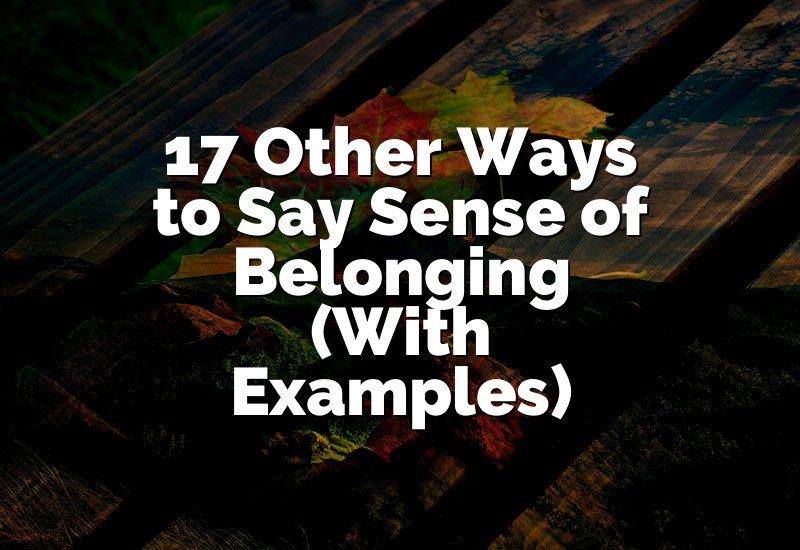You ever had to trade snacks with a friend or switch chores with a sibling? That’s an exchange! But "exchange" isn't the only word out there. There are many other words that mean the same thing, like swap, trade, or switch. Using different words makes speaking or writing more fun and interesting. So if you're ready to learn new and simple ways to say "exchange," you're in the right place.
1. Trade
The word trade means giving something and getting something in return. It can be anything—like toys, cards, or even services. People trade items when both sides agree it's fair. I traded my sandwich for a cookie at lunch. Trade is also used in business when countries or companies sell and buy things. This word is common and easy to use when you give one thing and take another. They traded books after finishing their old ones. Trade is friendly and useful, and you can use it anytime something is given and something else is received in return.
2. Swap
Swap means to exchange one thing for another, usually between two people. It's casual and fun to use. Let's swap seats so you can sit by the window. Kids often swap toys or cards. It's a quick and friendly way to change things. You can use it for clothes, stories, or even ideas. They swapped phone numbers after the meeting. The word is simple and used often in everyday conversations. Swap is perfect for easy trades where both people are happy with what they get. Just remember, when you swap, you both give and both get.
3. Switch
Switch means to change one thing for another. You can switch places, items, or tasks. Can we switch jobs today? I'm tired of sweeping. It's a very easy and common word. Switch is used when two people or things change spots or roles. It can also mean replacing one thing with another. They switched bags by accident at the airport. The word is helpful in many situations, especially when something needs to be changed or replaced quickly. Switch is a friendly, flexible word that works well in everyday life.
4. Barter
Barter means to trade goods or services without using money. This was the way people used to trade long ago. He bartered his painting for a bag of apples. You give something you have and get something else you need. Barter is still used today, especially in small towns or between friends. They bartered gardening help for homemade bread. It's a good word when talking about fair trades, especially without money. It's a little more formal but still simple to use when you’re talking about exchanging one thing for another.
5. Transfer
Transfer means to move something from one person or place to another. I transferred the money to your bank account. It's a more formal word, often used in business or school. You can transfer files, jobs, or even ownership of something. She transferred to a new school last year. Transfer works well when you give something over, and it doesn't always mean you get something back. It's more about moving or handing something over. Even though it sounds official, it's easy to understand and useful in many situations.
6. Give-and-take
Give-and-take means both sides share or agree by giving something and getting something in return. It's a way to keep things fair and balanced. A good friendship needs give-and-take. This word is often used in relationships, teamwork, or conversations. It means being fair by not always getting your way. There was a lot of give-and-take during the meeting. It shows that both people are trying to help each other. It's not just about trading stuff, but also ideas, feelings, or support. It's a great word to show balance and fairness.
7. Replace
Replace means to take something away and put something new in its place. He replaced the broken toy with a new one. It's not always a direct trade, but it shows that something old or missing is changed. I replaced sugar with honey in the recipe. Replace is used in everyday tasks, like fixing or changing things. It's a great word when something is not working, and you want to use something else instead. Replace is easy, useful, and clear in meaning.
8. Interchange
Interchange means to switch or exchange things back and forth. The players interchanged positions during the game. It is often used when two or more things can be changed in place with each other. Interchange is a bit more formal than swap or switch, but still easy to understand. They interchanged ideas during the discussion. It's helpful when talking about equal and fair changes between two things. This word is great for explaining teamwork, roles, or shared ideas that go back and forth.
9. Convert
Convert means to change something into a different form or type. He converted his coins into paper money. It's used when something changes completely into something else. Convert is also used in cooking, math, religion, and more. She converted the recipe from cups to grams. It doesn't always mean a trade, but it shows change. You can convert one thing into another for better use or understanding. Convert is simple, and you hear it a lot in daily life when something needs to be changed.
10. Substitute
Substitute means to use one thing in place of another. I substituted butter with oil in the recipe. It's a common word, especially in cooking, school, or sports. A substitute teacher is someone who fills in when the regular teacher is away. She substituted orange juice for milk. The idea is that you use a different thing, but it works the same way. Substitute is helpful when you don't have the original item, and you need something else to take its place. It's easy and practical.
11. Reciprocate
Reciprocate means to give back what someone else has given you. He helped me, so I reciprocated by helping him. It's often used in relationships or kindness. If someone gives you something or shows kindness, and you give something in return, that's reciprocating. She smiled, and he reciprocated with a wave. It's more about feelings or actions than things, but it's still a kind of exchange. The word may sound formal, but it's easy to use when you talk about fair responses.
12. Alternate
Alternate means to take turns or switch between two things. We alternate between chores every week. It's a fun and useful word, especially when talking about time or roles. It can also mean something that changes regularly. They alternate between going to her house and his. It doesn't always mean giving something and getting something, but it shows a back-and-forth pattern. Alternate is great for planning and sharing tasks in a fair way. It's clear, easy to say, and helpful.
13. Share
Share means to give part of what you have to someone else. She shared her lunch with her friend. It's a kind and friendly word, used often with kids. Sharing can be done with food, time, feelings, or anything else. They shared stories around the fire. It may not mean a direct trade, but both people often give something. Sharing builds trust and kindness. It's a word that makes people feel close and happy. You hear it everywhere and use it all the time.
14. Rotate
Rotate means to turn or take turns in a circle or pattern. We rotate duties every week. It's often used in jobs, sports, or schedules. You rotate when you change positions, often in order. They rotated who got to sit in front. It's not a trade, but it's about fair changes or movement. Rotate helps when many people want to do the same thing, and they all get a turn. It's a smart and clear word for fairness and planning.
15. Return
Return means to give something back. I returned the book to the library. It's easy to use and very common. When you borrow something, you return it later. He returned the shirt because it didn't fit. Return can be about things, feelings, or actions. If someone shows kindness, you can return it. It's a helpful word to show that you give something back that you once had. Return is short, simple, and useful in many ways.
16. Reimburse
Reimburse means to pay someone back for money they spent. I reimbursed her for the movie tickets. It's a formal word, often used in work or school. If someone buys something for you, and you give the money back, that's a reimbursement. He reimbursed me for the lunch I bought. It's an important word when dealing with money and fairness. It may sound long, but it's easy when you think of it as paying someone back. It's perfect for clear and fair exchanges.
17. Recompense
Recompense means to give something, usually money, to make up for a loss or help. They gave him money to recompense the damage. It's a formal word and often used in law or serious talks. She received recompense for the time she spent helping. It shows fairness and trying to do the right thing after a loss or effort. Though not common in daily talk, it's a smart word to know when you want to talk about making things right.
18. Redeem
Redeem means to trade something for value, like points or coupons. I redeemed my points for a free drink. It can also mean to fix a mistake or make something better. He redeemed himself by working hard. It's a strong word with a few meanings, but when it comes to exchange, it means using something to get a reward. You'll hear it in stores, games, and offers. Redeem is a useful word when you trade something that doesn't look valuable for something you really want.
19. Hand over
Hand over means to give something to someone, often officially. He handed over the keys to the new owner. It's a simple and clear way to show giving something away. It may sound formal, but people use it in everyday speech too. The officer asked him to hand over his license. It shows action, where something moves from one person to another. It's not always a trade, but it's still about giving.
20. Pass
Pass means to give something to someone by hand or move it along. Can you pass the salt, please? It's simple, friendly, and used all the time. It can be a paper, a ball, or a message. She passed the note to her friend. Pass is useful in games, conversations, or helping others. While it's not always a trade, it's part of moving things from one person to another. It's one of the easiest and most common exchange words.
21. Deliver
Deliver means to bring or hand something over to someone. The mailman delivered a package to our door. It's used with letters, food, gifts, or anything that moves from one place to another. She delivered the message with a smile. It's not always a trade, but it's part of giving something to someone. Deliver is clear and easy, used in daily life. Whether it's pizza or news, deliver is about getting something into someone's hands.
22. Relay
Relay means to pass something along, especially a message or signal. She relayed the news to the team. It's often used when one person gives something to another, who gives it to the next. They relayed the baton during the race. It's helpful for teamwork and communication. Relay is a little formal but still simple. It's perfect when you want to show a step-by-step exchange of information or objects.
23. Trade-off
Trade-off means giving up one thing to get another. There's a trade-off between speed and safety. It's used when you can't have everything, so you exchange one benefit for another. He made a trade-off by working late to get more money. It's not a physical trade, but more of a choice. Trade-off is helpful when making decisions. It shows balance and the idea that you must give something to gain something.
24. Transact
Transact means to do business, like buying or selling. They transacted the deal quickly. It's a formal word, used mostly in business, banking, or law. The two companies transacted smoothly online. Transact shows an official exchange of goods or services. It may sound formal, but it's good to know when talking about business trades or deals. It's a smart word to show something was done between two parties.
25. Mutual transfer
Mutual transfer means an exchange where both sides agree to move things. The students arranged a mutual transfer between schools. It's often used in jobs or education. There was a mutual transfer of ideas during the workshop. It shows that both parties wanted the exchange and worked together. The word is formal but easy to understand. It's great for showing a fair and equal change.
26. Intercommunicate
Intercommunicate means to share ideas or messages back and forth. The teams intercommunicated to solve the problem. It's not about trading items, but about sharing information. They intercommunicated using walkie-talkies. It's more formal and not often used in daily talk, but it's useful when talking about systems or teamwork. It shows clear exchange of ideas or messages.
27. Shift
Shift means to move something or change its place. She shifted the books to the other shelf. It can also mean to change from one job or role to another. He shifted from cleaning to cooking. It's not always a trade, but it shows movement. Shift is used when talking about changes in position, time, or focus. It's simple and useful in daily life.
28. Swop
Swop is just another way to say swap, mostly used in British English. Let's swop seats so you can see better. It means giving one thing and getting another. They swopped comics at school. It's fun, casual, and easy to use. It shows a fair and friendly trade between people.

Final Thoughts
Learning new words like these can make your writing and talking more fun. Instead of always saying "exchange," try words like swap, switch, or trade-off. Each word gives a different feel and works better in different situations.









